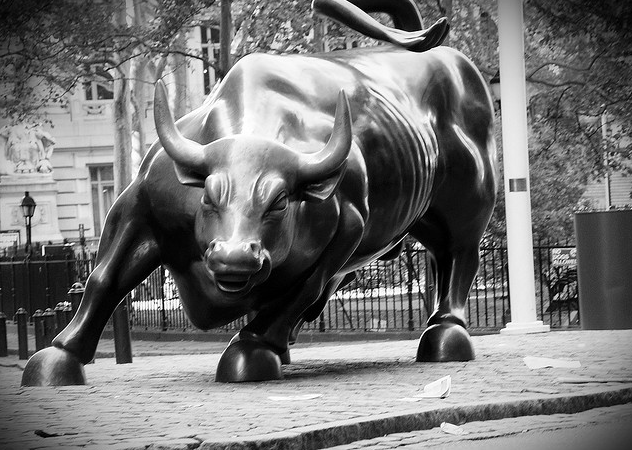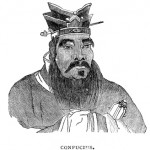The Ugly Truth Behind Goldman Director’s Resignation
A few hours ago, the New York Times published a blistering Op Ed by Greg Smith, a Goldman Sachs director, titled Why I Am Leaving Goldman Sachs. It is getting remarkable coverage in the twittersphere, blogosphere and conventional press.
And no wonder! It is a scathing indictment by a privileged insider of one of the great Wall Street firms. It’s Matt Taibbi’s Vampire Squid story all over again – but this time from the Inner Circle.
I’m going to let everyone else revel in the spectacle of moral outrage, and focus on one statement Mr. Smith makes:
If clients don’t trust you they will eventually stop doing business with you. It doesn’t matter how smart you are.
This is true: but occasionally clients will need a little help from their friends.
Trust or Money?
The public dialogue about trust in business is polarized. One side says, “Trustworthy behavior ultimately pays off.” The other side says, “Get real, only suckers believe that.”
I’m a believer in free markets. I also believe free markets are relatively rare. Here’s how trust plays out in them.
Personal Trust
The market for trust at the most basic level – interpersonal relationships – is very free. If you behave in an untrustworthy manner, you will lose the trust of others, quickly and surely. If you betray a co-worker or a boss, you’ll get your come-uppance quickly. Ditto for one-on-one retail businesses.
It is also at that level – the deeply personal – that trust is strongest. The difficulty always comes in scaling trust.
Scaling Trust
The easiest form of social trust is tribal, clan-based. Think of the Mafia, think Chinese family culture, think sports fans. The way to operate a really successful clan is through culture. Read Francis Fukuyama on national cultures of trust.
Now read Epicurean Dealmaker on Goldman Sachs’ culture, The Fish Stinks from the Head, written three years ago. This movie has been playing for some time now.
When corporations achieve great internal trust through strong culture, they can accomplish great things. They can also accomplish terrible things.
The market for trust at the corporate level is far, far from a free market. The power of tribal trust alone is enough to crush dissenting individuals. Whistle-blowers rarely fare well; and the stronger the culture, the worse they are treated.
We hear too often the debate about whether trust is profitable or not. In the long run, across enough organizations, the answer is yes. (See Trust Across America for some data to this effect).
The question is: is there a linkage in the shorter term, in fewer interactions? If Greg Smith is right that customers eventually leave untrustworthy companies – how come it takes them so long?
The Wheels of Justice Grind Exceeding Slow
There is no iron-clad “law” of social justice that says high trust will yield high returns, or that good will be returned for good, etc. Despite the best efforts of trust proponents and new-order-capitalism theorists, the trustworthy behavior of one individual or one company is not guaranteed to be rewarded in this lifetime, this market, this quarter.
Worse yet, downright villainous bad behavior can be rewarded very, very handsomely. Greg Smith quit Goldman today after 12 years; but those 12 years have been astronomically profitable for Goldman. Markets these days are far from free and trust doesn’t pay off quickly.
So let’s not be naïve about the inherent power of trust to vanquish all evil.
The challenge for all of us is to get above tribal trust and climb to a higher level of societal trust.
Can the GOP stop its circular firing squad? Can the US Congress ever serve its broader constituency? Can organizations like Goldman re-learn how to transfer internal trust to external clients? Can salespeople learn to trust, and entrust, their customers? Can the Chamber of Commerce stop fighting regulators?
Goldman can’t be relied on to fix itself. It has failed to do so. The question is not how evil they are or how many more public resignations it will take. It is how long will society wait for corrections to happen?
The Invisible Hand is not all-seeing when it comes to trust. In fact, it can be downright blind. Occasionally, clients need a little help.
What is To Be Done?
You can find your own battle in this framing of the war. Ask yourself: whom do you trust? Who’s your clan? Who do you throw in with?
Then ask yourself: whom am I fighting? Who is the enemy? Who don’t I trust? And challenge yourself to take it to another level.
Don’t be a voyeur watching the Goldman saga turned into TMZ gossip television. Use it. Do something about it. Up the stakes.
Trust one-on-one is easy. Even tribes and corporate culture aren’t all that hard. The challenge is to remember that we no longer live in a tribal world.
The Ugly Truth in the Goldman story is that it’s not self-correcting. This is not a Greek tragedy with the gods pulling the strings. It’s not even a Hollywood comedy, with script-writers pulling us to a natural resolution.
Social trust is a choice, not an inevitable law of nature. And this is not a dress rehearsal.



As always, a very insightful and revealing post. Well stated, Charles.
Nice discussion, Charlie. Scaling of trust is certainly a big issue, and I love how you bring in the Invisible Hand.
Back in the 1700’s, when Smith coined the term, I think there was real truth to the metaphor. Back then all business (like politics?) was local. Today, however, the world is flat and data is overwhelming. Add to this that our personal networks are now much larger and more widely distributed.
I suspect that in today’s world, the Invisible Hand is mostly powerless. It is easy to setup, and then close, business operations with little personal cost–just start another! Even honest mistakes from distributed businesses can cause local problems: the large store opens in a small town, the small local business is lost, then the large store shuts down when expectations are not met.
Life isn’t a dress rehearsal, and times are always changing. You feel better about yourself if you act in a trusting way, and you feel better about your company when it acts in a trusting way–life is too short for anything less.
Thanks Jim for the comments, here and on Google + (where Jim has his own good post, https://plus.google.com/114197433257896961904/posts?hl=en-US)
Richard, echo your thoughts on Invisible Hand. It requires some modernization to make the journey 300 years forward, as you say. Unfortunately, the only updating it has gotten is to make it more doctrinaire and rigid.
Smith originally used the term in his earlier (and arguably his favorite) book, Theory of Moral Sentiments – a point wholly lost on the neo-Randian fans of crony capitalism. On top of the large-small organization issue, there are also issues today of lifelong branding (how can you resist Big Food if you were raised on Ronald McDonald) and market power.
Thanks both for furthering the discussion. I think the Smith (Greg this time) resignation will provoke a lot of conversation, and that’s likely to be a good thing.
Charlie, you illustrate the depth of humanities temptation for reward over integrity. Ethical behavior is a choice and a character trait that cannot be enforced. Olympus is another example of loyalty to an inner circle can betray a larger group.
Selling integrity is a tremendous challenge. Being great has a stronger attraction than the rewards of being good. One can become great by being good, yet we are not teaching that. This is the important area that metrics, balance sheets, and P&Ls miss.
Do you think developing a culture of trust, internally and publicly is more difficult for public organizations than private companies?
“…Greg Smith quit Goldman today after 12 years; but those 12 years have been astronomically profitable for Goldman…” (Charlie)
No one snowflake ever takes responsibility for an avalanche. Wonder where Greg Smith was – consciously – after his first 12 minutes, 12 days, 12 weeks, 12 months….and who was he prior to his stint at GS?
In addition to your well-posited questions, the question beneath the question is, “Who am I?” Really? Asked early and often, it can support one to more appropriately follow the path of true north. Ignored and denied, the path is becomes series of detours, bumps, and dead-ends, in the larger picture.
Wonder where Greg Smith was – consciously – after his first 12 minutes, 12 days, 12 weeks, 12 months….and who was he prior to his stint at GS?
In addition to your well-posited questions, the question beneath the question is, “Who am I?” Really? Asked early and often, it can support one to more appropriately follow the path of true north. Ignored and denied, the path is becomes series of detours, bumps, and dead-ends, in the larger picture called life.
However, I am encouraged that things are changing. Two of my sons are now working in the City (London) for Collins Stewart and J P Morgan and things are changing for the good. I was telling them some of the things that happened to Martin Schwatrz in his book Pit Bull. They were genuinely appalled at many of his stories. “You can’t do that dad; that’s market manipulation; that’s against the FSA rule; that’s insider dealing – you’d go to prison for that.”
My sons show a sharp sense of what is legal, but before we get to that stage they show a sharp sense of what is fair and honest. We shouldn’t assume that everyone on Wall Street and in the City is some sort of con-man or pirate.
In Robert Ringers book ‘Winning Through Intimidation’ he talks about the big lie. That’s the one you never see coming, the one that hugely shocks you when it happens. You can’t really protect youself from it unless you become extremely cynical and paranoid. So every so often we should expect to be shot down by the big lie – its just life – its just the way some people are – they can’t help themselves. But they are not a role model – we should be justifiably outraged at their behaviour.